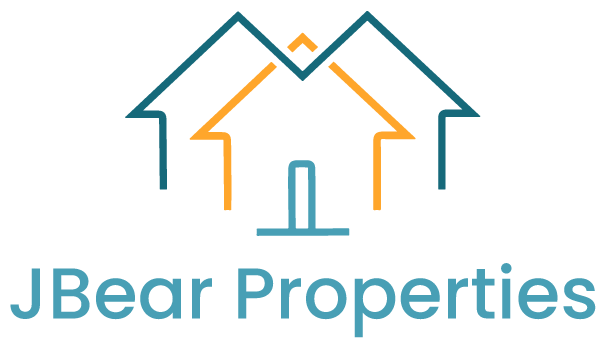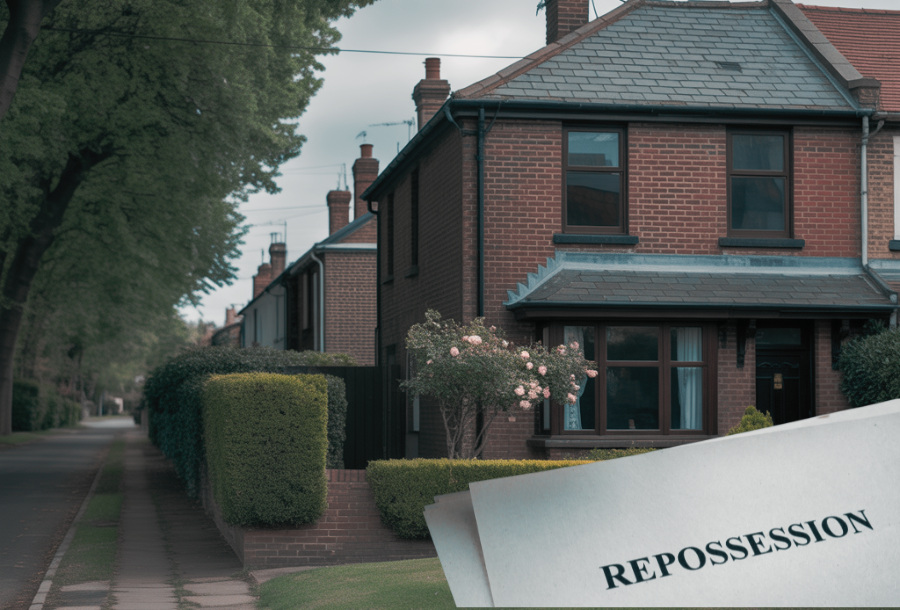Owning a home in the UK is often seen as a cornerstone of financial stability, but for many, it can become a significant burden. The daily running costs, such as utilities, council tax and maintenance, can add up quickly, and unexpected repair bills often strike at the worst possible moments. When combined with other life expenses like credit card payments, loans, or rising living costs, these pressures can snowball into a serious financial crisis. You’re far from alone in this; according to the Financial Conduct Authority, more than £10 billion is owed in late mortgage repayments across the UK, with a large percentage of the population facing some degree of mortgage arrears. If you’re currently grappling with the threat of losing your home, it’s crucial to act swiftly to stop repossession.
In this article, we’ll explore the repossession process, practical steps to stop repossession and why opting for a fast cash sale through a reputable buyer like J Bear Properties could be your best lifeline.
Contents
Understanding the House Repossession Process
Falling behind on mortgage payments is a common trigger for repossession proceedings. If you miss payments, your lender will first notify you of your mortgage arrears, the amount you’ve fallen behind on. This is a stressful situation, as unresolved arrears can lead to your lender initiating legal action. Statistics reveal that over 1.5 million households in the UK are struggling to keep up with their mortgage repayments, highlighting how widespread this issue is.
The process typically unfolds as follows: Your lender will attempt to contact you to discuss repayment options. If communication breaks down or no resolution is reached, they can apply for a repossession order through the courts. This order signifies that there’s a valid case for repossessing your property. You’ll then be required to attend a court hearing, where a judge will decide the outcome. If repossession is granted, you’ll receive a date by which you must vacate the property. Failure to comply could result in bailiffs being involved to enforce the eviction.
Once repossessed, your lender takes control of selling the property. Their primary goal is to recover the outstanding debt, including arrears, interest and legal fees. Any surplus funds after this are returned to you, but this is often minimal due to rushed sales and associated costs. The impact on your credit score is severe; a County Court Judgment (CCJ) from repossession can linger on your record for six years, making future borrowing, renting, or even employment challenging.

However, there’s a proactive alternative to this daunting process: voluntarily selling your home for cash. This approach allows you to stop repossession on your terms, avoiding court involvement and preserving your financial reputation.
Key Strategies to Stop Repossession
Communication is the foundation of efforts to stop repossession. Reach out to your mortgage lender as soon as issues arise; they view you as a customer and often prefer working out a solution rather than pursuing costly legal action. Prepare for the conversation by researching options: a mortgage holiday (pausing payments temporarily), switching to interest-only payments, or adding arrears to your overall mortgage balance. Demonstrating proactive thinking can sway lenders in your favour.
Beyond lender negotiations, consider generating additional income. If your mortgage terms allow, renting out your property or spare rooms could provide the cash flow needed to catch up on payments. Mortgage insurance, which many homeowners opt for during the 20-35 year lifespan of a typical mortgage, can also offer protection against job loss, illness, or other unforeseen events that lead to arrears.
If these steps aren’t sufficient, voluntary sale emerges as a powerful tool to stop repossession. In the current UK housing market, trends like increased property supply and slower price growth (with a 0.8% month-on-month drop in June 2025) have created a buyer’s market, particularly in areas like London and the South East. This oversupply makes traditional sales slower and more competitive, often taking 60 days or more to secure a buyer via estate agents. Stamp duty changes in April 2025, which lowered the threshold for first-time buyers from £425,000 to £300,000, have further dampened demand, exacerbating affordability issues amid rising mortgage rates.
In such a climate, cash buyers thrive by offering speed and certainty. They bypass mortgage approvals, buyer chains and lengthy negotiations, completing deals in 7-14 days regardless of market conditions. For homeowners aiming to stop repossession, this means avoiding further arrears accumulation and court proceedings.
However, not all properties are straightforward to sell. Some may be deemed un-mortgageable due to factors like structural defects (e.g., subsidence or roof damage), non-standard construction (timber frames or thatched roofs), short leases under 70 years, or invasive plants like Japanese Knotweed. Other issues include flooding history, unapproved extensions, proximity to commercial sites, low value (below £40,000-£50,000), environmental hazards, sitting tenants, or title deed problems. These can deter traditional buyers reliant on mortgages, but cash buyers often purchase “as-is,” accounting for conditions in their offers. This makes them ideal for stopping repossession when your property has such complications.
Clearing Debts to Stop Repossession
Debt doesn’t discriminate; it can accumulate unexpectedly due to low borrowing costs encouraging overspending, followed by life changes like job loss or health issues. The Bank of England reports around £200 billion in outstanding UK personal debt, with credit cards alone accounting for over £65 billion. Ignoring debts leads to compounding interest and can spill over into mortgage arrears, heightening repossession risks.
To combat this, face debts head-on: prioritise principal repayments over just interest and communicate with creditors. If debts have escalated, selling your property voluntarily can clear them entirely, providing a clean slate. This is especially relevant if repossession looms, as it prevents additional CCJs or bankruptcy.
Knowing your finances inside out is essential to prevent and stop repossession. Track monthly income against outgoings, including fixed costs and spending habits. Use online budgeting tools to spot early warning signs like missed bills. Reviewing statements monthly can nip issues in the bud, averting larger crises.

If finances feel overwhelming, seek expert advice. Free services like Citizens Advice Bureau, Debt Advice Foundation, or PayPlan offer impartial guidance on debt management, benefits and strategies to stop repossession. This isn’t a sign of failure but a smart step toward recovery.
How J Bear Properties Can Help You Stop Repossession Now
If repossession is imminent, act fast with J Bear Properties. Our service is free, with no hidden fees—we even cover your legal costs. Here’s how we assist:
- Fast Cash Offers: We provide a competitive cash offer based on current market values, using data from platforms like Rightmove, Zoopla and the Land Registry.
- Liaison with Lenders: We’ll communicate with your lender to confirm a sale agreement, halting repossession proceedings.
- Quick Completion: Tailored to your timeframe, often in 7-21 days, avoiding further financial damage.
- Control in Your Hands: You set the terms, not the bank, ensuring a dignified exit.
The process of selling for cash is straightforward: Find a reputable buyer (check NAPB or TPO membership, Trustpilot reviews), understand valuation, verify proof of funds, compare offers, negotiate, time the market and close efficiently. With J Bear Properties, we handle paperwork, title searches and more, buying “as-is” without repairs.
Home Repossession Process FAQs
Q1: How to stop repossession? As cash property buyers, J Bear Properties can purchase your home quickly, settling lender debts and transferring remaining funds to you. Contact us early for the best chance.
Q2: Why use a cash buyer over repossession? Repossession damages your credit for years; a voluntary sale preserves it and avoids additional fees.
Q3: When to contact us? Immediately upon realising a sale is necessary, we guarantee the highest industry cash offer.
Q4: Can you stop a CCJ? Yes, if contacted within the 30-day window, our fast sale can prevent it from being logged.
Financial hardships are common, but repossession isn’t inevitable. By understanding market trends, addressing property issues and choosing a cash sale, you can stop repossession effectively. Contact J Bear Properties today for your FREE offer and take the first step toward financial freedom. We can help you avoid repossession, regain control of your situation and even cover your legal fees associated with the sale.
Related articles


